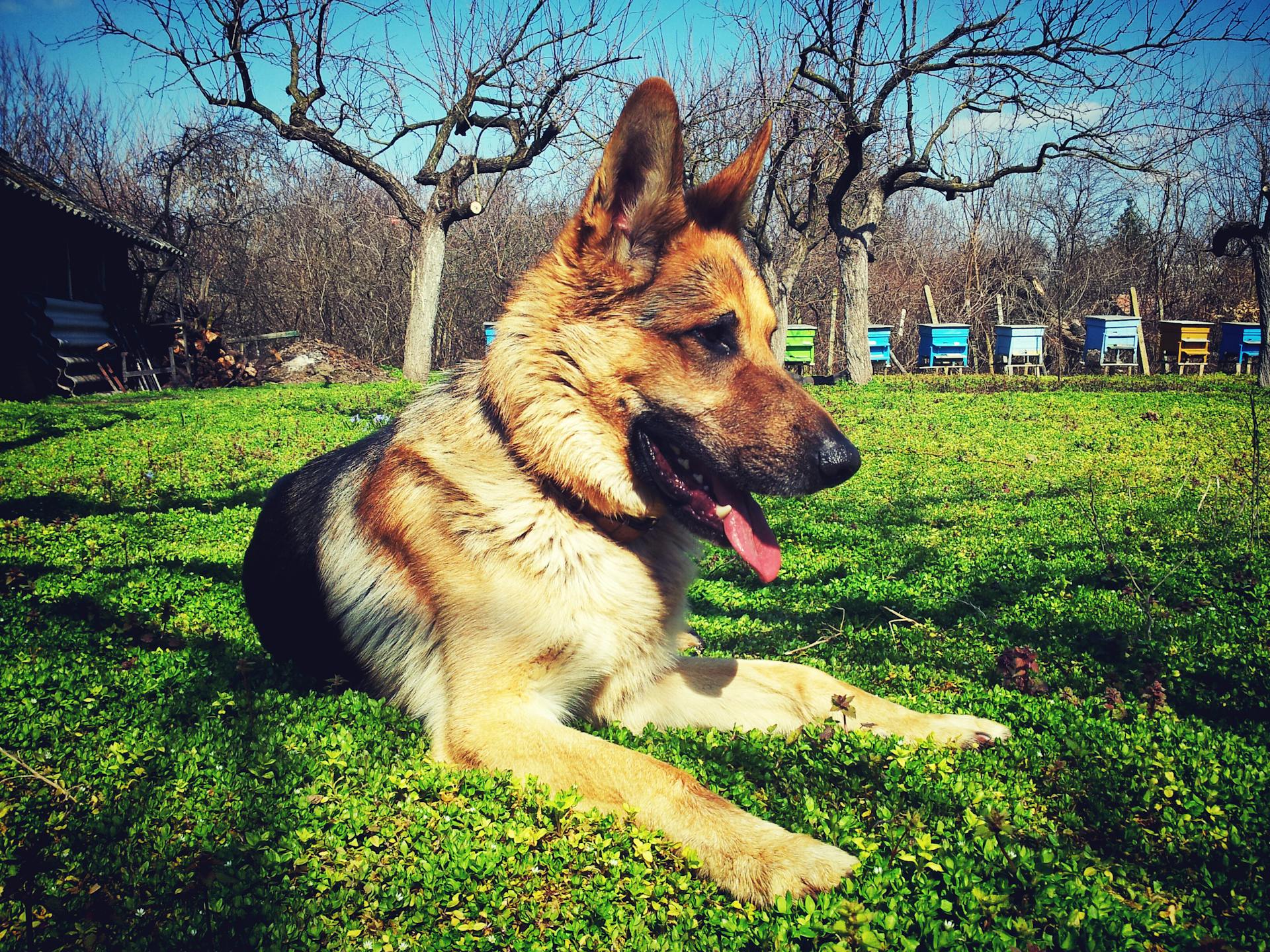
Chocolate is toxic to dogs, and eating it can be fatal for a Yorkshire Terrier. The darker the chocolate, the more toxic it is.
A small amount of chocolate can cause vomiting and diarrhea in a Yorkshire Terrier. If left untreated, chocolate toxicity can lead to seizures, heart problems, and even death.
Chocolate contains a compound called theobromine, which is poisonous to dogs. Theobromine can cause a range of symptoms, from mild to severe, depending on the amount and type of chocolate consumed.
Symptoms of chocolate toxicity can appear within 6 to 12 hours after ingestion and can last for up to 72 hours.
Recommended read: Are Yorkshire Terriers Good Pets
Causes and Risks
Chocolate contains both caffeine and theobromine, which are toxic for dogs.
These substances speed up the heart rate and affect the canine nervous system in a harmful way, causing stimulation of the central nervous system and heart.
The darker the chocolate, the higher the risk to dogs, with cocoa powder being the most toxic.
One ounce of milk chocolate per pound of a dog's body weight can be deadly, while as little as 0.1 ounces per pound of unsweetened baking chocolate may be lethal.
Dogs may also be at risk for developing gastrointestinal distress or even pancreatitis due to chocolate's high fat and sugar content.
The amount of theobromine and caffeine in chocolate varies, but ingesting small amounts, especially in a smaller dog, should be treated as an emergency.
Some dogs will eat a small amount of chocolate and show no symptoms, but this doesn't change the fact that chocolate is still dangerous for them.
For your interest: Dog Ate Chocolate Bunny
Symptoms and Diagnosis
If your Yorkshire Terrier ate chocolate, it's essential to know the symptoms of chocolate poisoning. Vomiting, diarrhea, and rapid breathing are common signs that can appear within 4 to 24 hours after ingestion. If your dog is vomiting, it's crucial to take them to the vet right away.
The severity of the symptoms depends on the amount of theobromine ingested and your dog's size. In severe cases, symptoms can include cardiac arrhythmias, muscle tremors, and seizures. If your dog is showing serious symptoms like seizures or losing consciousness, head to the vet or emergency veterinary hospital immediately.
Here are some common symptoms to watch for:
- Vomiting
- Diarrhea
- Rapid breathing and restlessness
- Increased heart rate
- Increased urination
- Higher body temperature
- Low blood pressure
- Tremors
- Seizures
Dogs and Human Food
Chocolate is a no-go for dogs. It contains theobromine, an ingredient that's poisonous for them.
The darker the chocolate, the higher the theobromine content. This means dark chocolates and cocoa powder are much more toxic than milk chocolate.
White chocolate has the lowest level of theobromine, but it's still not safe for dogs.
If your dog eats chocolate, they might start showing symptoms like vomiting, diarrhoea, and hyperactivity. These symptoms can appear up to four hours after the chocolate was eaten.
The severity of the symptoms depends on the size of your dog and the amount of theobromine ingested. If your dog eats a lot of chocolate, they might experience muscle tremors, seizures, internal bleeding, or even a heart attack.
If you suspect your dog has eaten chocolate, get in touch with your vet immediately. The sooner you act, the better.
Discover more: How to Draw a Yorkshire Terrier Dog
Clinical Signs
Clinical signs of chocolate poisoning in dogs can vary depending on the amount of chocolate ingested and the dog's size. They may occur within 2-12 hours after ingestion and can last 12-36 hours, sometimes longer in severe toxicities.

Vomiting is a common symptom of chocolate poisoning, often accompanied by diarrhea. In severe cases, dogs may experience seizures, tremors, and even cardiac arrhythmias.
Increased thirst and urination are also common symptoms, as well as restlessness, fast breathing, and an increased heart rate or irregular heart rhythm. Hyperexcitability and tremors can also occur.
Here are some common clinical signs of chocolate poisoning:
- Vomiting
- Diarrhea
- Increased thirst and urination
- Restlessness
- Fast breathing
- Increased heart rate or irregular heart rhythm
- Hyperexcitability
- Tremors
- Incoordination
- Seizures
- Fever
- Coma
It's essential to note that the severity of symptoms depends on the dose of theobromine ingested and the dog's size. If you suspect your dog has eaten chocolate, it's always better to err on the side of caution and seek veterinary care immediately.
Expand your knowledge: Dog Names for Yorkie
Treatment
Treatment for your Yorkshire Terrier's chocolate ingestion will depend on the clinical signs they're displaying. If they're showing life-threatening signs, those will be managed first.
The vet may induce vomiting to help remove the chocolate from their system, even if it's been a few hours after ingestion. Chocolate tends to absorb slowly, so this can still be effective.
Most patients require hospitalization, which means your vet will likely keep an eye on them overnight. This is to ensure they don't develop any serious complications.
Here are some possible treatments your vet may use:
- Induced vomiting
- Administering oral activated charcoal
- Antinausea medications and GI protectants
- IV fluids
- Medications to stop tremors
- Medications to prevent irregular heart rhythms
- Medication to stop seizures
- Urinary catheterization or frequent walking to encourage urination
The goal of treatment is to manage your dog's symptoms and prevent any serious complications from arising. With prompt and proper care, your Yorkshire Terrier should recover fully from chocolate ingestion.
Dog Ate Something - Emergency?
If your Yorkshire terrier ate chocolate, it's essential to act quickly. Get in touch with your vet immediately if you suspect your dog has eaten a lot of chocolate.
The sooner you can get to the vet, the better. Your vet will want to know what type of chocolate was eaten, how much was eaten, and when it was eaten. If there are any wrappers or packaging, take these with you to the vet.
If your dog is showing symptoms related to chocolate poisoning and theobromine toxicity, such as vomiting, diarrhea, rapid breathing, or increased heart rate, get in touch with your vet right away. These symptoms can appear within 4 to 24 hours after eating chocolate.
Here are some signs to watch for:
- Vomiting
- Diarrhea
- Rapid breathing and restlessness
- Increased heart rate
- Increased urination
- Higher body temperature
- Low blood pressure
- Tremors
- Seizures
If your dog is having serious symptoms like seizures or losing consciousness, head to your vet or emergency veterinary hospital right away.
Frequently Asked Questions
How to flush chocolate out of a dog's system at home?
To help flush chocolate out of your dog's system at home, mix 1 gram of activated charcoal powder with 5 ml of water per 2.2 pounds of body weight. Administering this dose may help prevent absorption of toxic elements, but consult a vet for guidance and immediate care.
How much chocolate is toxic for dogs?
For dogs, toxic amounts of chocolate are typically found in 60 grams of milk chocolate per kilogram of body weight. Keep in mind that even small amounts can be problematic, especially for smaller breeds.
Sources
- https://www.vet.cornell.edu/departments-centers-and-institutes/riney-canine-health-center/canine-health-information/chocolate-toxicity-what-should-i-do-if-my-dog-eats-chocolate
- https://vcahospitals.com/know-your-pet/chocolate-poisoning-in-dogs
- https://www.oscarandhooch.com/blog/can-dogs-eat-chocolate/
- https://www.walkerroadanimalhospital.com/my-dog-ate-chocolate-should-i-be-worried/
- https://kylepetvet.com/poisons/my-dog-ate-chocolate-what-to-do/
Featured Images: pexels.com


